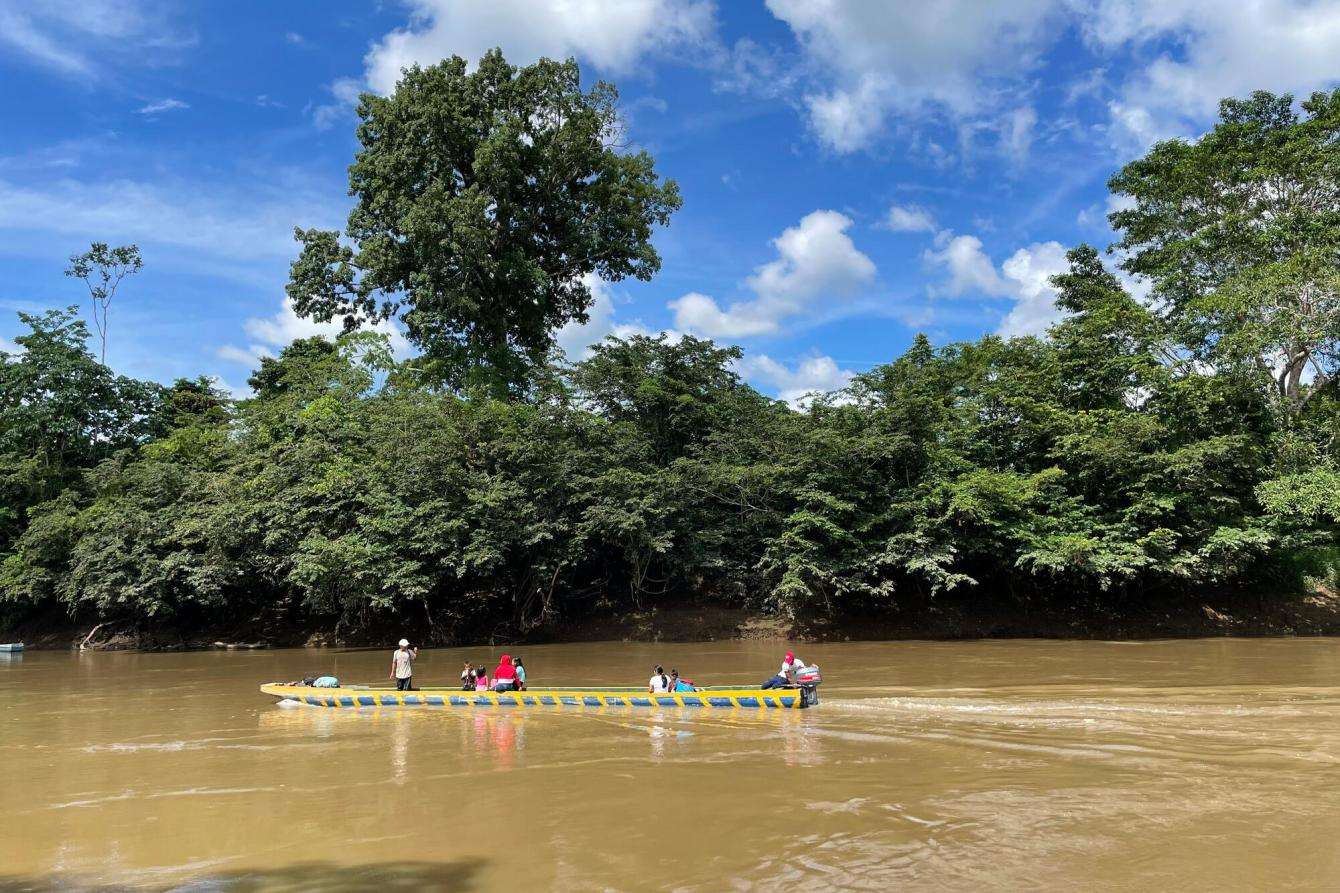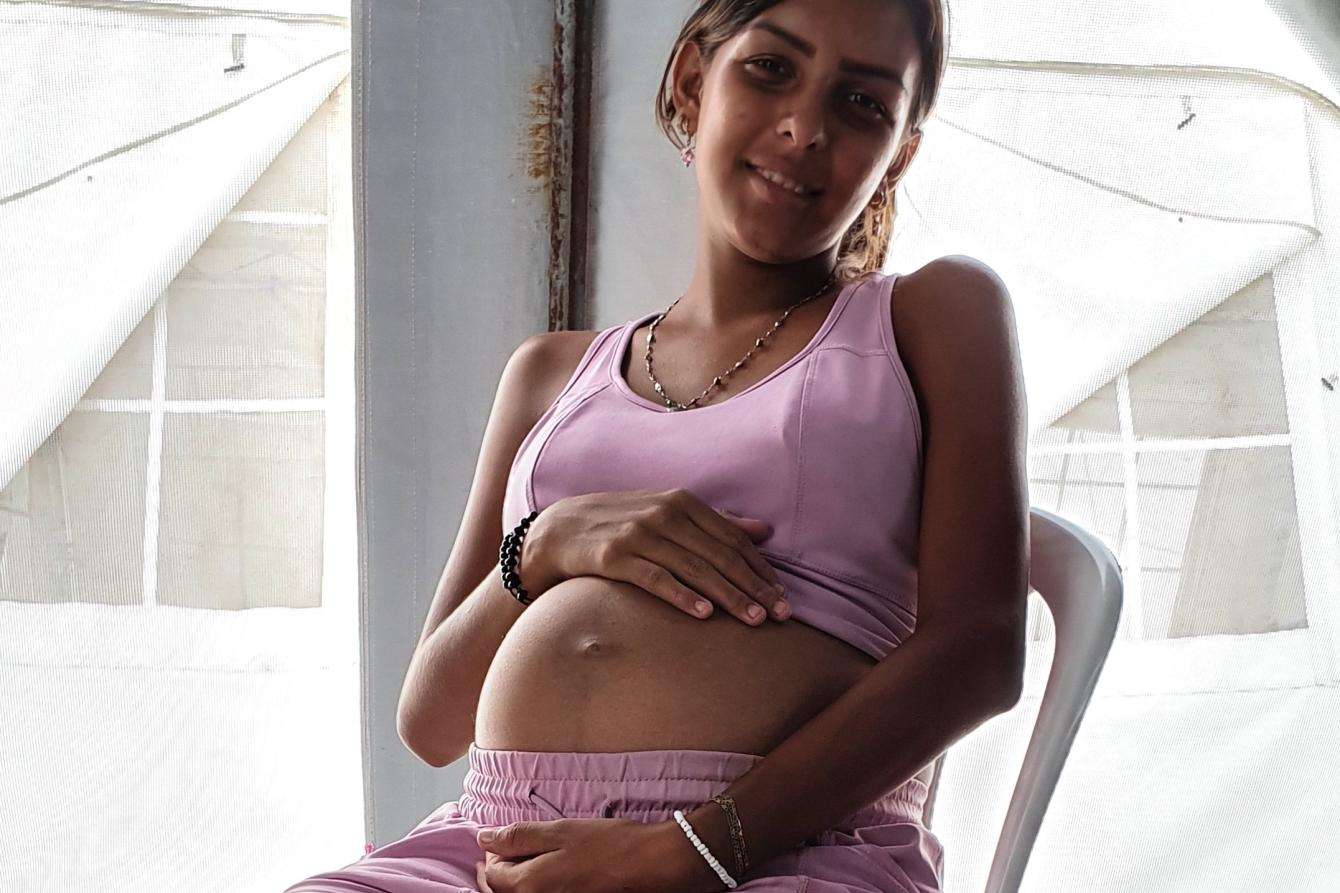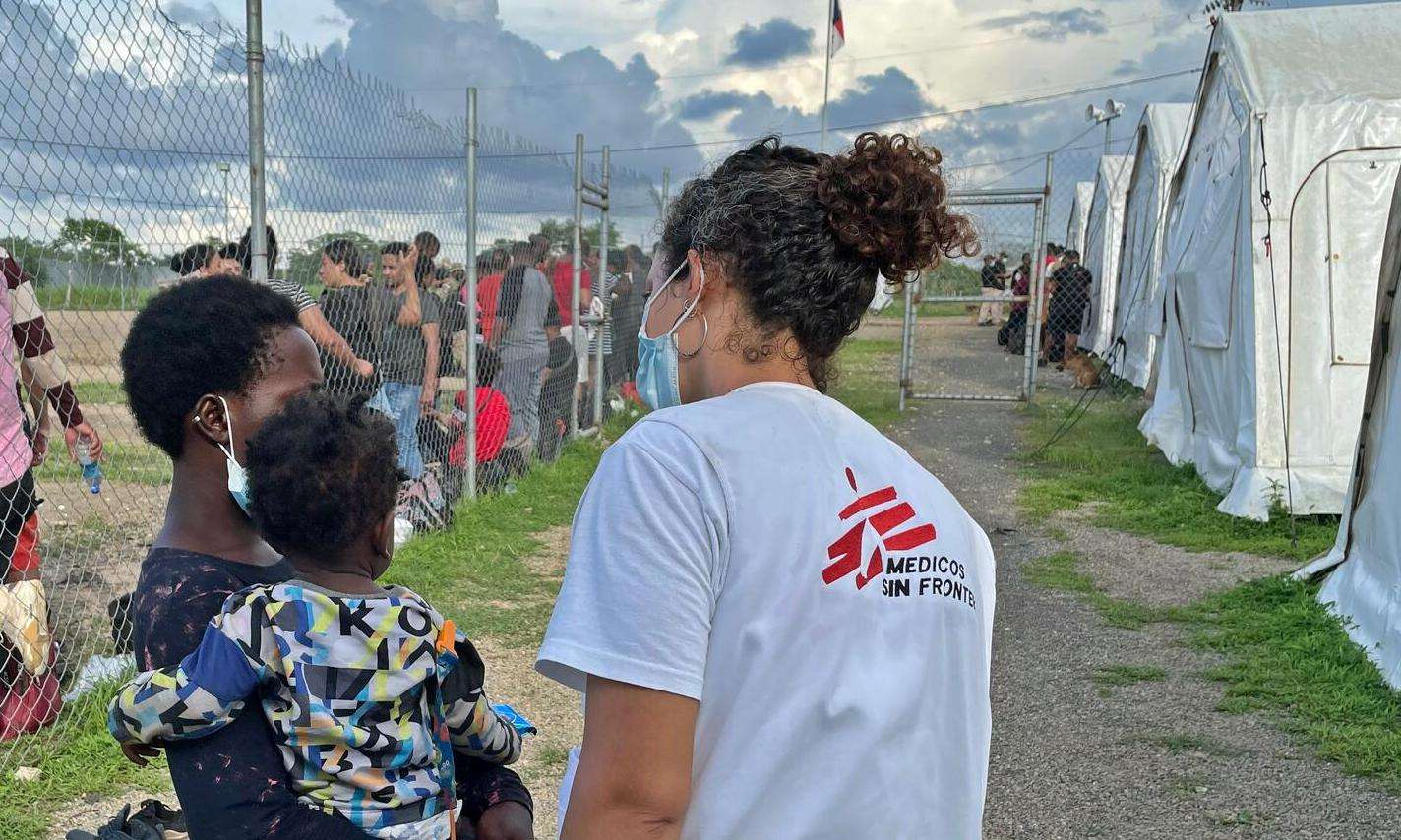Since April 2021, Doctors Without Borders/Médecins Sans Frontières (MSF) has been treating migrants who have crossed the Darién Gap—the thick jungle that spans more than 3,000 miles and separates Colombia from Panama. It has become one of the main corridors for migrants of different nationalities trying to reach the United States.
The Panamanian government calculated that 227,987 people crossed this dangerous and insecure route from January to November of this year, a historic record. In 2021, close to 130,000 people made this trek. People travel between four and ten days in the jungle, traversing rivers, climbing mountains, exposed to criminal groups in the area.
Over the course of 2022, MSF has worked in the migrant reception center in San Vicente in Panama—conducting 35,302 medical consultations and 2,230 mental health consultations. The majority of people are treated for skin infections and body aches, diarrhea, respiratory infections, and gastrointestinal issues. The most common chronic diseases our teams are seeing are hypertention, asthma, diabetes, and HIV. Since April 2021, MSF has provided 79,402 medical consultations and 3,570 mental health consultations.

Between January and October 2022, more than 83 percent of people who accessed mental health services did so for reasons related to violence. Among the events that triggered a mental health consultation, 13 percent had to do with migration (family separation, harsh living conditions, etc.), 11 percent due to sexual violence, 11 percent due to issues related to economic migration, 11 percent due to issues faced during transit in Darién Jungle, and 7 percent due to stigma and discrimination.
Below are two testimonies from migrants who crossed the Darién jungle this year and who were treated by MSF:
“Mom, what is rape?” my children asked me.
32 year-old-woman from Venezuela
My husband was killed in the protests in Venezuela in 2017. In that moment, I decided to emigrate with my two children, who are 12 and 9, first to Colombia and then to Ecuador. In those countries, I sold cake and coffee, but I didn’t have enough money to stay in either place.
A group of friends decided to migrate and cross the Darién so I took advantage of the opportunity to leave with them for the United States, where my brother lives. There were 23 of us, leaving from Necocli, reaching Capurgana. From there, we entered the jungle.
The Darién was very difficult to traverse and we saw it all—even dead people. The worst happened in the zone they call Las Banderas. There we were robbed and raped. I was raped and several other women and girls were also raped.

Surge of humanity needed for migrants and refugees
Read moreA group of men armed with machetes, guns, and rifles arrived and intercepted us. They had us climb a mountain. They separated the women from the men. I left my boys with one of my cousins. I asked one of my friends to protect my daughter. When all the women were gathered together, the armed men started to ask "where are the women with the prettiest faces?" and they took the youngest women. They were chosen first but later we were all raped. They used our own blankets and mattress pads that we’d brought with us to sleep during the route.
They held us for about four hours while they searched us and took our belongings. When they let us go, we ran as fast as we could and started to go down the mountain, screaming the names of people who had been released before us to see if we could find each other.
I was really scared for my kids, especially my daughter. I thought about the girls who had been raped. We had to keep going and it was really hard. I give thanks to God because they didn’t harm my kids and because at least they let us go alive.
My children are very united, we are together for everything. They didn’t see anything [that happened to me] but they heard what the other girls were saying. “Mom, what is rape?” they asked me. I just said that it’s when women are mistreated. They wanted to know if they’d harmed me and I told them no. I just wanted to protect them, because I knew they were scared.
When we reached the migrant center we received medical attention. We were sick from drinking contaminated river water and my son had an ear infection. They examined me and gave me medication to prevent HIV. I also had a case of cystitis (urinary tract infection). I’m feeling better and now I want to keep going. I want to look for opportunities for my children. I want them to go to school. For a woman on her own, this is very hard.
“We arrived with nothing, only with what we have on.”
18-year-old woman from Venezuela, 8 months pregnant

I’m Venezuelan and I emigrated to Peru in November of last year. We decided to leave Peru because we were living in a situation very similar to how we were living in Venezuela. We didn’t have enough money to afford anything. We started hearing everyone talk about the United States and the possibilities that exist there, so we decided to go and try.
We left Peru by hitchhiking, then we reached Ecuador, then Colombia, and Panama. We crossed the jungle—we left from Capurgana in Colombia. Before crossing, I would have liked to know what that was like. I thought I knew, but I really had no idea.
I crossed while I was seven months pregnant and it took us ten days. We did it all alone. It rained a lot and I was scared. We were lucky because the river wasn’t cresting. We were carrying a pot for cooking and a lighter and we cooked the food we brought with firewood we found along the way. At first, we had a lot of stuff, but we had to start leaving it behind because we couldn’t take all that weight. We threw out our clothes, our blankets, and even that pot we used to cook. We arrived to Panama with nothing except the clothes we had on. To whomever wants to take this route I would tell them not to do it. I’ve seen many people who’ve arrived traumatized. I’ve heard stories of people who have witnessed their families die along the route. Don’t you dare put yourself through this.
Since I’ve been here in San Vicente, I’ve been able to monitor my pregnancy at MSF’s medical tent. There, they listened to the baby, they checked that everything was ok, and they gave me all the vitamins I need. It’s going to be a girl and she’ll be named Chery. I’m scared because I think I might have to give birth here.
As soon as we’re able to, we’ll continue our way to the United States. There, we will work and save our money until we have enough money to buy a house in Venezuela, and try to return. Any other way, it wouldn’t be possible. Beyond that, I don’t know what the future will bring. I haven’t even imagined how my baby will be.
How you can help
Not everyone can treat patients in the field. But everyone can do something.
Some humanitarian crises make the headlines—others don’t. Unrestricted support from our donors allows us to mobilize quickly and efficiently to provide lifesaving medical care to the people who need it most, whether those needs are in the spotlight or not. And your donation is 100 percent tax-deductible.




